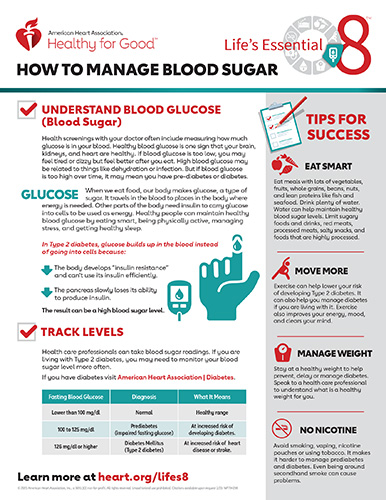Mastering the Sweet Science: A Guide to Blood Sugar Management

In today's fast-paced world, understanding how to maintain healthy blood sugar levels is a vital key to overall well-being. Blood sugar management plays a crucial role in maintaining energy levels, managing weight, and reducing the risk of various health conditions. This guide aims to empower you with the knowledge and tools to become a Sugar Defender, arming you with the necessary information to navigate the realm of blood sugar management effectively and proactively. By taking charge of your blood sugar levels, you can harness a sense of control over your health and vitality, paving the way for a vibrant and balanced life ahead.
Understanding Blood Sugar
In order to effectively manage your blood sugar levels, it is crucial to first understand what they are and how they can impact your overall health. Blood sugar refers to the concentration of glucose present in your bloodstream, which serves as the main source of energy for your body's cells. When you consume food, especially those high in carbohydrates, your body breaks down these nutrients into glucose, causing your blood sugar levels to rise.
Maintaining stable blood sugar levels is essential for optimal health, as fluctuations can lead to various complications such as fatigue, mood swings, and long-term health issues. The body relies on insulin, a hormone produced by the pancreas, to regulate blood sugar levels by allowing glucose to enter cells for energy or storing it for later use. When this delicate balance is disrupted, it can result in conditions like diabetes, where blood sugar levels remain consistently elevated.
By becoming a Sugar Defender , you can take proactive steps to manage your blood sugar levels and promote overall well-being. This involves making smart lifestyle choices such as eating a balanced diet, engaging in regular physical activity, and monitoring your blood sugar levels regularly. With the right knowledge and dedication, you can empower yourself to take control of your health and master the art of blood sugar management.
Effective Strategies
Implementing consistent meal timing is crucial for maintaining stable blood sugar levels throughout the day. By spacing out meals evenly, your body can process carbohydrates more effectively and prevent sudden spikes or drops in blood sugar. Aim to eat breakfast, lunch, and dinner at the same times each day to establish a routine that supports your body's natural rhythms and helps regulate sugar levels.
Incorporating fiber-rich foods into your diet can also aid in blood sugar management. Fiber helps slow down the absorption of sugar into the bloodstream, providing a steady release of energy and preventing sharp spikes. Focus on including fruits, vegetables, whole grains, and legumes in your meals to boost your fiber intake and support a more balanced blood sugar profile.
Regular physical activity plays a key role in controlling blood sugar levels. Exercise helps improve insulin sensitivity, allowing your cells to better utilize glucose for energy. Aim for a combination of aerobic activities like walking or cycling, along with strength training exercises to enhance muscle function and overall metabolic health. By staying active, you can enhance your body's ability to regulate blood sugar and maintain optimal wellness.

Maintaining Healthy Habits
When it comes to Blood Sugar Management, establishing and sticking to healthy habits is crucial for long-term success. Consistency is key in maintaining stable blood sugar levels throughout the day. One of the most effective habits to embrace is consuming a balanced diet rich in whole foods such as fruits, vegetables, whole grains, and lean proteins. These nutrient-dense choices can help regulate blood sugar and provide sustained energy.
Regular physical activity plays a significant role in managing blood sugar levels. Engaging in exercise not only helps improve insulin sensitivity but also aids in maintaining a healthy weight. Aim for a mix of cardiovascular exercises, strength training, and flexibility workouts to ensure a well-rounded fitness routine. Even incorporating small bouts of movement throughout the day, such as taking short walks or stretching breaks, can make a positive impact on blood sugar control.
In addition to diet and exercise, managing stress levels is another essential aspect of maintaining healthy blood sugar. Chronic stress can lead to elevated blood sugar levels, so incorporating stress-reducing activities like mindfulness practices, deep breathing exercises, or hobbies that promote relaxation can be beneficial. Prioritizing adequate sleep and establishing a consistent routine can also contribute to overall well-being and support blood sugar management efforts.
